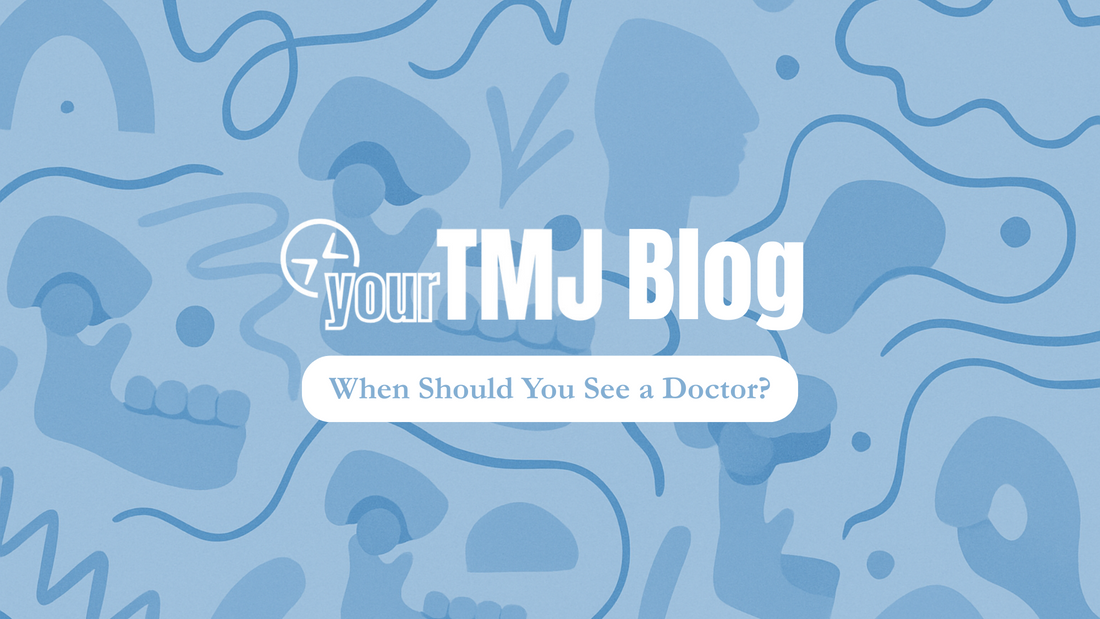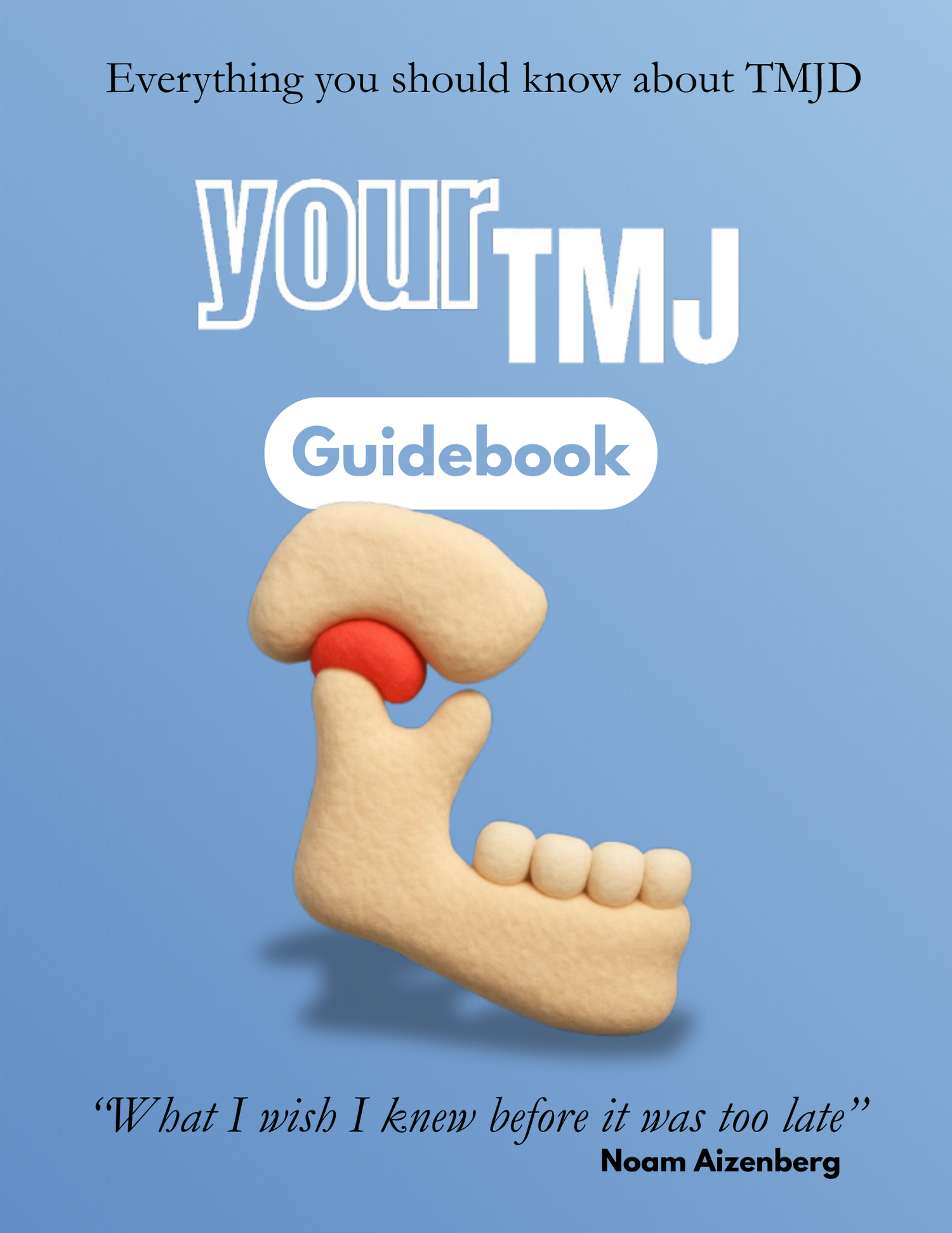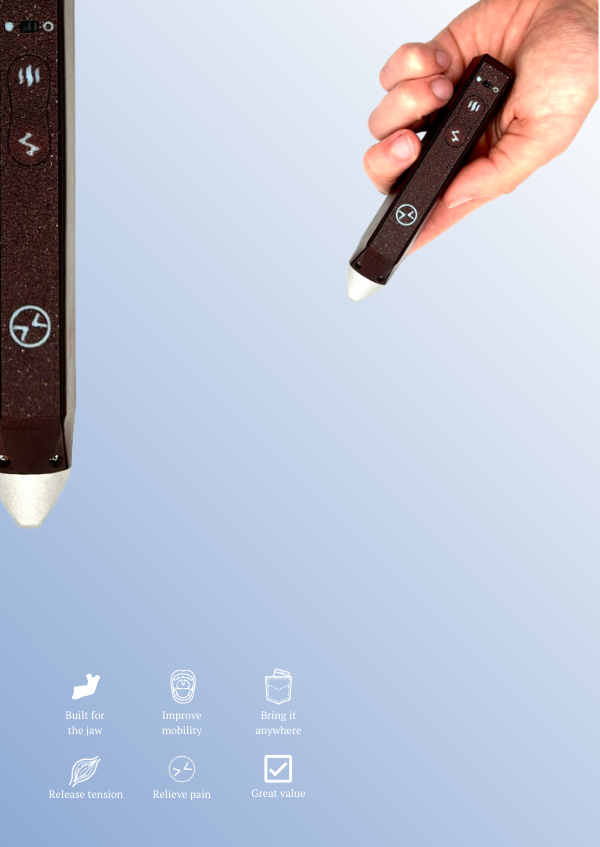When Should You See a Doctor for TMJ?

When Should You See a Doctor for TMJ?
A lot of people try to tough out their jaw pain. They wait, hope it goes away, and try advice from forums. But when exactly is it time to stop guessing and see a professional?
This article will break down when seeing a doctor for TMJ is the smart move, and what kind of doctor you should even be looking for. Because let’s be real, many doctors don’t fully understand TMJ disorder, which is why getting informed is so important. That’s why at the end of this article, you’ll find a free 76-page guidebook that gives a full, evidence-backed breakdown of TMJ disorder, treatment options, and practical steps you can take right now to start feeling better.
If You're Asking, It's Probably Time
Let’s start with the obvious: if you’re reading this and wondering whether your jaw pain is “bad enough,” the answer is likely yes. Pain is your body’s way of saying something’s wrong. Often times, TMJ symptoms can go away on their own. But sometimes they don't and only get worse, so it may not be worth the risk to ignore it.
But that doesn’t mean you need surgery or even medication. In fact, the majority of TMJ cases can be treated/managed conservatively (things like manual/physical therapy, postural corrections, massage, etc). The point is, if it’s been bothering you for more than a few weeks or is interfering with basic things like eating or sleeping, it’s time to at least get it evaluated.
Signs You Should See a Doctor for TMJ
-
Persistent Jaw Pain If you’ve had ongoing pain in or around your jaw joint for more than a couple of weeks, it’s time to get it checked. Especially if the pain worsens with jaw movement, chewing, or talking.
-
Clicking or Popping With Pain Clicking without pain isn’t necessarily a red flag if it isn't chronic. But if the sounds are accompanied by discomfort or getting progressively worse, it could be a sign of joint or disc dysfunction.
-
Difficulty Opening or Closing Your Mouth If your jaw feels stuck, locks up, or has limited range of motion (especially under 30mm opening), that’s a sign of more serious dysfunction—like disc displacement or joint adhesion. Even if it's muscle tension, there's usually a root cause as to why this tension occurs.
-
Frequent Headaches or Ear Pain If your symptoms go beyond the jaw and include migraines, tension headaches, tinnitus, or pressure in your ears, your TMJ might be affecting nearby muscles or nerves.
-
Symptoms Aren’t Improving If you’ve been stretching, doing home exercises, or avoiding trigger foods and nothing’s getting better—or it’s getting worse—that’s your cue to see someone.
What Kind of Doctor Should You See for TMJ?
This part is tricky. There’s no single medical specialty that “owns” the TMJ, which means people often bounce between dentists, ENTs, and even neurologists.
-
Orofacial Pain Specialists: These are dentists with extra training in TMJ disorders. You can look them up through the American Academy of Orofacial Pain.
-
TMJ-Focused Physical Therapists: Especially helpful for muscle-based dysfunction and jaw mobility issues.
-
TMJ Specialist: Important note, is that there is no regulation for who can call themselves a "TMJ Specialist." There are a lot of dentists that have been practicing TMD treatment for a long time and are really well versed; but there are just as many who just took a weekend long course on a single treatment method and have been repeating it over and over again no matter the scientific evidence. Basically be careful if they charge >$3000 for treatment - there are many cheaper (conservative) treatment options that have been shown to work most of the time.
-
Oral/Maxillofacial Surgeons: Even most surgeons are trained to administer conservative treatments first. They can give you imaging, give potentially helpful medications, and refer you to other doctors who know what they're doing. Many also perform less invasive surgeries such as the TMJ arthroscopy or arthrocentesis.
- ENTs: Great for ruling out inner ear or sinus problems, which can sometimes mimic TMJ symptoms. Or potentially fixing breathing problems that may be leading to jaw problems.
Before You Go, Get the Full Picture
Seeing a doctor is an important step, but going in informed is even more powerful. You need to understand what questions to ask, and whether the explanations from your doctor are evidence based or just an attempt to grab your money. That’s why I put together a free 76-page guidebook that breaks down TMJ disorder in plain language. It covers root causes, muscle vs joint pain, posture, breathing, sleep, and all the best home exercises to start right away.
If you want to walk into your appointment with clarity (and avoid being talked into treatments you don’t need), take some time to read this guidebook over.




